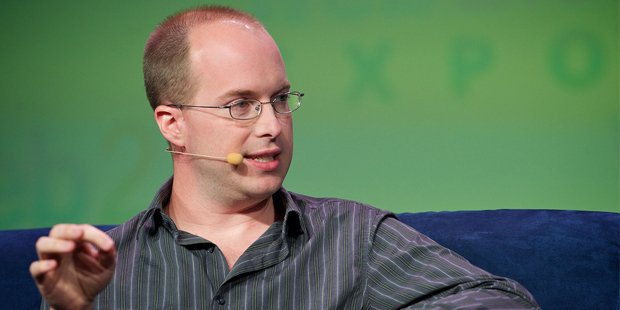
Paul T. Buchheit is an American computer entrepreneur and engineer. He was the creator and lead developer of Gmail. He developed the original prototype of Google AdSense as part of his work on Gmail.
Early life and education
Paul T. Buchheit is an entrepreneur and a computer engineer, who was born on the 7th of November 1977 and grew up in Webster, New York. Buchheit attended Case Western Reserve University in Cleveland, Ohio where he obtained his BS and MS Computer Science.
Gmail
Buchheit worked at Intel and later became Google’s 23rd employee. In 2001, Buchheit began developing Gmail, a free email service with its innovations in search and storage. The project was known as Caribou. Google kept its project private even to own engineers during its early development. It started to change when the project became a lot better by early 2004, where almost everybody was using Gmail to access the company’s internal email system. By April 2004, Google announced Gmail to the public as a limited beta release. Gmail was ranked second, behind Mozilla Firefox in PC World’s “100 Best Products of 2005”. Gmail also won in 2005 as ‘Honorable Mention’ in the Bottom Line Design Awards. Forbes acknowledged Gmail to be the best webmail application for small businesses in September 2006. In November 2006, Gmail received a 4-star rating in PC World.
AdSense
Buchheit also prompted what would become AdSense. Google adopted the name AdSense after Google acquired Applied Semantics in April 2003. Buchheit had the impression to manage ads within Google’s email service. Buchheit and others mentioned that Susan Wojcicki with Sergey Brin organized the team that adapted that idea into an enormously profitable product. By early 2005, AdSense accounted for an approximated 15 percent of Google’s total revenues.
Some advertisers whined that what AdSense produced was more terrible than AdWords since it served ads that associated contextually to the content on a web page, and that content was less inclined to be identified to a user’s commercial desires than search results. For instance, somebody perusing a blog devoted to flowers was less likely to be interested in ordering flowers than someone searching for terms related to flowers. As a result, in 2004 Google approved its advertisers to opt out of the AdSense network. In 2006, Buchheit left Google and founded FriendFeed.
FriendFeed
Paul Buchheit co-founded FriendFeed, together with the other former Google employees Jim Norris, Sanjeev Singh, and Bret Taylor, which launched in 2007. FriendFeed was a real-time feed aggregator that joined updates from blogs, social media, social networking websites, social bookmarking websites, micro-blogging update, and as well as any type of RSS/Atom feed.
The objective was to make the content on the Web more pertinent and convenient by using existing social networks as a tool for finding interesting information. These users could be an individual, organization, or business. Bloggers began writing about FriendFeed and believed that this service attends the shortcomings of social media services, which absolutely helps to track of their own member’s social media activities, whereas FriendFeed offered the facility to track these activities (such as posting on blogs, Flickr, and Twitter) across a wide-ranging of other social networks. Some bloggers had issues about readers commenting on their posts on FriendFeed rather than commenting on their own blog posts, causing to have fewer site views for the blogger. FriendFeed was situated in Mountain View, California, and had by and large one million month to month guests. FriendFeed’s employees formed the Simple Update Protocol to reduce the load put on sites by aggregators such as theirs.
On August 10, 2009, Facebook agreed to obtain Buchheit’s FriendFeed. FriendFeed was gained for $15 million in cash and $32.5 million in Facebook. Facebook, alongside a little yet a dynamic network of clients, kept the service going until its pre-announced closure on April 9, 2015.
Y Combinator
In 2010, Buchheit left Facebook to become partners with the investment firm Y Combinator. From 2006 (when he started investing) until 2008, Buchheit put around $1.21 million out of 32 distinct organizations. About portion of those organizations was either obtained or are dead. The other half is as yet alive and appears to progress admirably. The present acquisitions aggregate about $1.34 million, just about a 10% increase, which isn’t extraordinary however not losing excessively. Luckily, the “still alive” category incorporates various promising investments like Weebly, Meraki, and Wufoo. Buchheit expects the last return will be vastly improved than 10%. Of the present acquisitions, just two are more noteworthy than 10x return: Heroku and Mint.
It’s worth remarking that the most noteworthy return was from a Y Combinator (Heroku, winter 2008). Buchheit has been putting resources into the Y Combinator companies nearly from the start (Wufoo was winter 2006), and they continue showing signs of improvement. Y Combinator is welcoming the best authors, and Heroku is only a hint of something larger. The more noteworthy Y Combinator companies there are, the more reasons there are for other savvy founders to join Y Combinator, and Buchheit ends up asking non-Y Combinator companies for what good reason they aren’t joining yet. This trend certainly added to Buchheit’s choice to join Y Combinator as its partner.
Paul Buchheit won 2011 The Economist Innovation Awards for the Computing and telecommunications field.